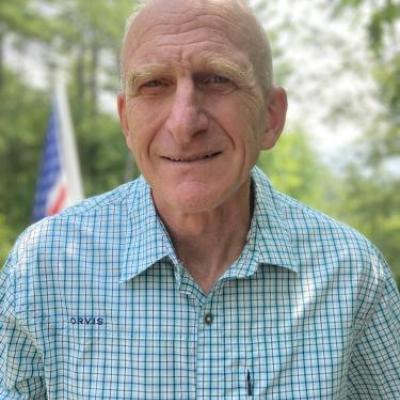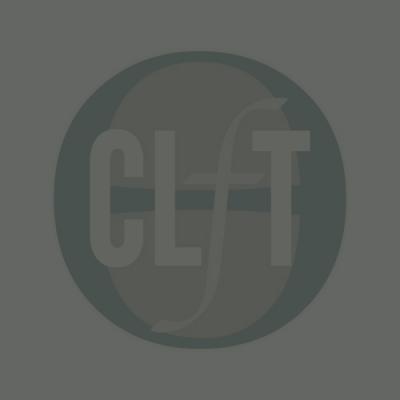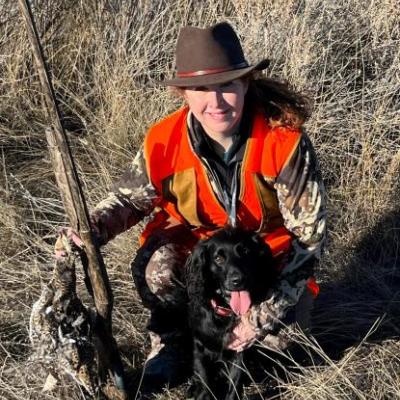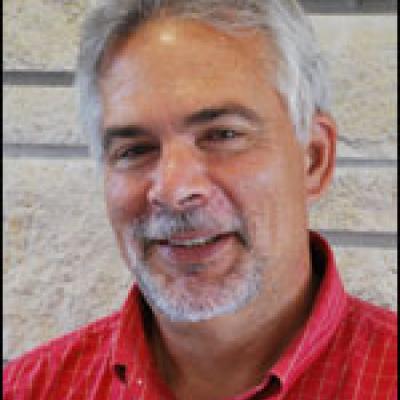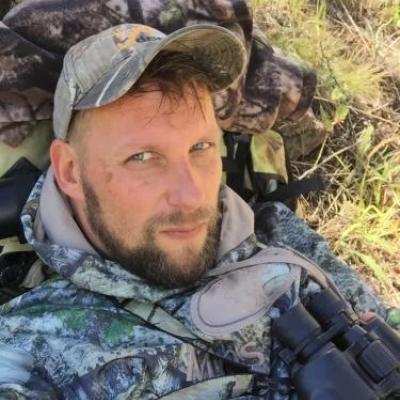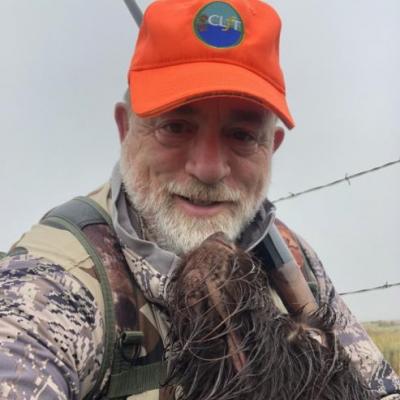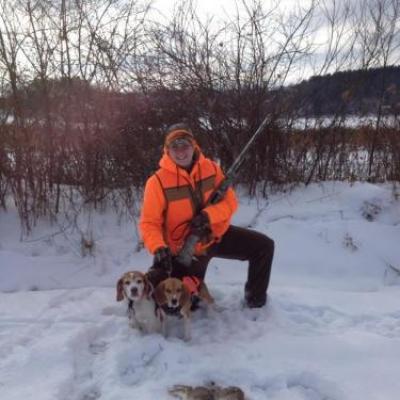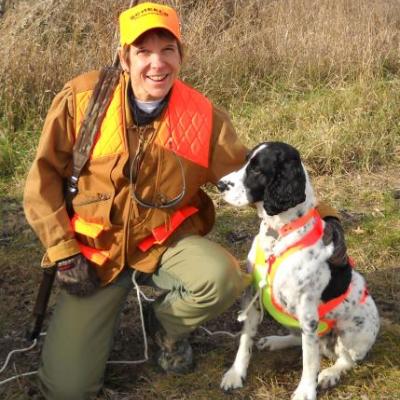The George S. & Dolores Dore Eccles Wildlife Education Center
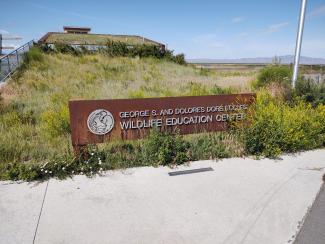
The new George S. and Dolores Doré Eccles Wildlife Education Center at Farmington Bay — located on the Robert N. Hasenyager Great Salt Lake Nature Reserve — provides a gateway to the remarkable Great Salt Lake wetlands. The education center and its nature trails are now open to the public.
The complex that makes up the Eccles Wildlife Education Center includes the L.S. Skaggs Wetland Discovery Classroom, an auditorium and an exhibit building.
Selected participants will travel to Salt Lake City, Utah
On behalf of the Max McGraw Wildlife Foundation, I would like to welcome you to our program. We are pleased you will be participating in our CLfT Professional Workshop in Farmington, UT at the George S. and Delores Doré Eccles Wildlife Education Center. Your time with CLfT will be informative, busy, fun, and safe.
Hunters and hunting are integral parts of natural resource management and conservation in North America. As such, hunting is nearly impossible to characterize universally. It is, however, an activity fraught with misunderstanding, both positive and negative. At our workshop, we invite you to take a thorough look at hunters and the facts and fiction surrounding hunting in North America. We welcome whatever questions you have, however difficult or sensitive, because they are very likely to be the same ones that you, as a professional, will be asked - regardless of your personal involvement with hunting.
CLfT instructors come from a variety of personal and professional backgrounds, but each of us has a common dedication to science, the practice of natural resource management, and the correlated heritage of hunting and the consumptive uses of wildlife. In addition, we are committed to making your workshop experience informative, memorable, and beneficial to your conservation career.
During the workshop, the instructors will share their knowledge, passion, and experiences via roundtable discussions, technical presentations, and various field exercises, including firearms handling, shotgun shooting, game cleaning and preparation, hunting with dogs and one-on-one interactions. There is also a safe, mentored educational hunt for participants who wish to experience hunting and gain a better understanding of this activity. You are not required to participate in any of the field activities that make you uncomfortable, but we expect all participants to observe, listen, learn, and enjoy.
It is neither the intention nor purpose of the CLfT program, staff or instructors, to convince you to be a hunter, or recruit you in any way. Our purpose is to provide an opportunity for you to learn about, witness, and briefly experience hunting. Your future personal involvement with hunting and the consumptive uses of wildlife is irrelevant and divergent to the primary concern, objective, and goal of the program. We believe that CLfT will enable you, as you advance in your professional career, to have a better understanding of the biological, social, economic, and personal values associated with the consumptive uses of wildlife, while also gaining an understanding of the role hunting, and hunters have in wildlife conservation and the natural resources profession.
You will be staying at the Hyatt Place Hotel in Farmington, UT just a few minutes away from the George S. and Delores Doré Eccles Wildlife Education Center. (Transportation will be provided)
The outdoor field exercises will be conducted even if it is cold, rainy or snowing, so come prepared for those possibilities. We recommend you check the Farmington/ Salt Lake City, UT area weather prior to packing.
Please note: We will request that cell phones be turned off, or at a minimum, silenced during workshop hours. You should let family and friends know that you will check messages as time permits. As you have seen on our agenda, we do have long days that extend into the evening after dinner. Mealtimes and late evenings will be your optimal times to call home.
If you have not already done so, please be sure to let us know of any dietary, medical, and or learning needs, or other condition that might require attention, including necessary use of prescription medication. Such confidential information will be shared only to the extent necessary to ensure participant safety, comfort, and well-being.
We will try to make the workshop as interesting, enlightening and as fun as possible. In any case, it will be safe and an adventure. For additional information on the CLfT program, please visit our webpage at www.clft.org .
See you soon and feel free to contact me with any questions,
David L. Windsor
Director, CLfT
765.427.5712
dave@clft.org
Please bring the following important items:
- comfortable, warm, outdoor field clothing--not too bulky
- toiletries
- cap or headband; (optional for your comfort)
- gloves (optional for your comfort)
- rain gear (optional for your comfort)
- warm, waterproof, hiking/ work style boots
You may also want to consider bringing the following optional items:
- handwarmers
- personal snacks
- Agency marketing and giveaway items (to share with other participants/ NOT REQUIRED)
Outreach Programs Chief, Missouri Department of Conservation, January 2004-December 2009
Wildlife Research Supervisor, Missouri Department of Conservation, January 1999-December 2004
Wildlife Research Biologist (wild turkeys, ruffed grouse, forest ecology, agricultural systems), Missouri Department of Conservation, August 1985-December 1998
Wildlife Biologist, Missouri Department of Conservation, January 1979-July 1985
As a Wildlife Research Biologist Mr. Kurzejeski has significant experience in designing and conducting research, often working closely with collaborators at the University of Missouri. His research included work on population dynamics of galliforms; impacts of Federal Farm programs on plant and animal species; influences of forest management on terrestrial and aquatic systems; and measuring the attitudes and preferences of resource user groups. During his career with the Department of Conservation his work involved both the biological and social sides of natural resource management. He led many agency-wide communication efforts aimed at gleaning public input from Missouri citizens. He supervised staff responsible for the development of hunting regulations and worked closely with all aspects of regulatory process.
Joli’s passions have evolved from LE training and “education through enforcement” to introducing new audiences to conservation and natural resources recreation and appreciation through programs including Outdoor Journey for Girls and Becoming an Outdoors Woman. She also enjoys working with Iowa State University (ISU) in outdoor skills programming, Hunter Education, class presentations, and presenting for over two decades with the Program for Women in Science and Engineering.
Joli enjoys trailrunning, bicycling, and paddling with her partner and dogs. She finds great joy and deep value in bird hunting (especially behind her late, beloved springer, Abbey), firearm and bow hunting deer from a treestand, and sitting in the spring woods calling turkeys. She is excited to spend more time doing all of that--and CLfT!

